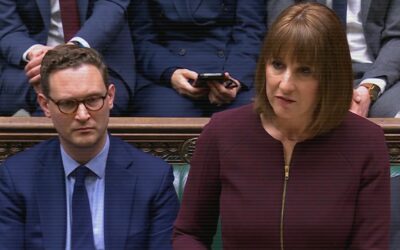The Shadow Chancellor, Rachel Reeves, announced plans to appoint a Covid corruption commissioner at the Labour Party Conference this week. The speech was low on detail, except for reference to a figure of £7.2bn of fraud against the taxpayer related to Covid financing.
The Guardian reported that the commissioner would be given powers to bring together HMRC, the Serious Fraud Office (SFO) and National Crime Agency (NCA) to pursue at least £2.6bn of ‘lost’ public funds. We assume that this announcement includes amounts lost under the three HMRC-administered schemes, although it is difficult to see how the HMRC figures fit into those quoted by Rachel Reeves.
TaxWatch welcomes new resources and focus to tackle recovery of these outstanding amounts, but we caution against the idea that such efforts can succeed within existing budgets. Our analysis of figures produced by HMRC for 2021-22 in relation to recovery from Covid schemes showed that the return on investment from one-off funding of the Taxpayer Protection Taskforce was significantly lower than that of HMRC compliance staff continuing in their original roles, a point HMRC itself recognised.
In its Annual Report and Accounts for 2022-23, HMRC announced revised figures for fraud and error in the Covid support schemes – CJRS (furlough), SEIS and EOHO – of between £3.3-7.3bn, with a most likely estimate of £5.0bn, i.e. 5.1% of the total support scheme costs. By March 2023, HMRC had recovered £520m, with an expectation that they will hit their target of £525-625m by September 2023, when the special taskforce set up to tackle these losses was to be disbanded, with staff returning to their original posts. There has always been an intention that these cases will continued to be tackled as part of business as usual.
Additional funds provided to support the Taskforce were used to recruit new staff, but it takes a few years to provide the right training and experience for staff to become fully functioning, so those staff will only now be coming fully on stream. This underlines why one-off funding is difficult.
HMRC needs ongoing, fully funded, resource planning to develop and allocate well-trained resources to the highest risks, as they arise. It is known that investment in HMRC compliance produces returns far in excess of the costs, so investing more to improve recovery appears to be a win-win situation.
Caution is also needed in assuming that significant amounts could still be recovered, because the passage of time makes evidence-gathering and asset recovery substantially harder, given time limits on HMRC’s investigation and assessment powers (in some cases only four years from the year of assessment).
It is great news that the Labour Party has a focus on ensuring that individuals and businesses cannot get away with defrauding the public purse. But success depends on fully-funded public services to take appropriate action in those cases.



